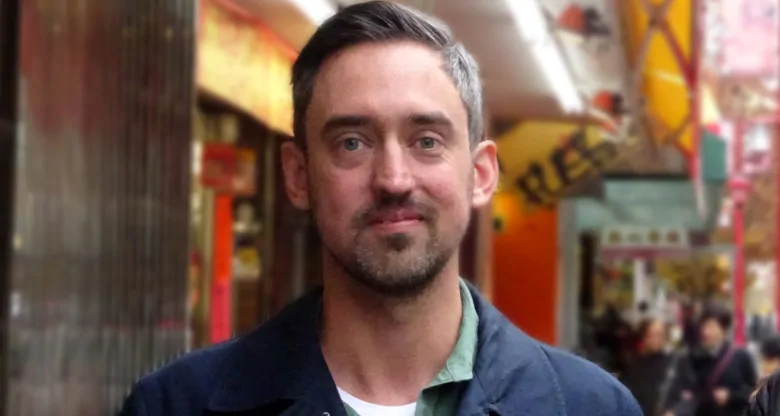Like the Queen selling Buckingham Palace to Airbnb: Why some experts are dismayed at sale of dot-org registry

The sale of the dot.org domain to an investment firm is stoking fears around platform access and rising costs for the non-profits that primarily rely on the system, according to the leader of the Save DotOrg campaign.
“It’s really disappointing to see it being sold off to a private equity firm,” said Jacob Malthouse, former vice president of the Internet Corporation for Assigned Names and Numbers (ICANN), which coordinates the domain name system.
“For me, dot-org has really come to represent the online conscience of the internet … a symbol of doing good, doing better, aspiring for something.”
When ICANN awarded control of dot-org in 2002 to the Internet Society — an organization founded to provide leadership in internet-related standards and access — Malthouse said they “claimed that they were going to steward it on behalf of non-profits, and in the interests of non-profits.”
But earlier this month, the Internet Society announced it had been approached by private equity firm Ethos Capital, and had agreed to sell dot-org for an undisclosed sum.
The agreed sale is due to be finalized early next year. The Internet Society says it will use proceeds to focus on its core work of getting more people connected to the internet worldwide.
“Imagine the Queen waking up one morning and telling everyone she’d sold off Buckingham Palace to Airbnb, but you know, it’s fine because the monarchy is going to make a whole bunch of money,” Malthouse told The Current’s Laura Lynch.
Ethos was set up six months ago, but is headed by people who have been in the field for a long time. Investors include funds related to Republican politicians Mitt Romney and the late Ross Perot.
The sale has been condemned by many within the industry, including the Netherlands chapter of the Internet Society. On Wednesday, Malthouse tweeted that more than 9,000 people had used the Save DotOrg campaign website to send letters calling for the sale to be stopped.
He wants the Internet Society to suspend the sale, and hold a global consultation on the future of dot-org.
“Don’t just sell it to a private equity firm — stand up and ask the question to all the non-profits around the world who rely on this infrastructure: ‘What should we do?'”
Fears over pricing and access
Earlier this year, ICANN agreed to a new contract for how domains like dot-org are managed, which included removing price caps on what can be charged.
An individual address costs between $10-$20 annually, but Charlie Cray, political and business strategist at Greenpeace, said increased fees could make a big difference to smaller non-profits.
“We have many allies in a movement that is largely grass roots, in its reach and in its size,” he told The Current.
Ethos Capital has issued a statement saying it is committed to keeping dot-org accessible and reasonably priced — but Malthouse is worried about what happens after the registry moves into private ownership.
“Ethos can turn around and flip this to somebody else within a couple of months,” he said.

Cray said organizations who use “tactics like non-violent, direct civil disobedience protests” could become vulnerable to crackdowns from authoritarian regimes.
“Conceivably, there might be countries where non-violent public protesting is illegal,” he said.
“A government in such a circumstance might petition the company and say: ‘This is an organization that regularly breaks the law, and you shouldn’t allow them to be registered on the internet.'”
CEO says deal ‘good for everyone’
Andrew Sullivan, president and CEO of the Internet Society, which is selling control of dot-org, says the organization has no special responsibility to non-profits.
“The basic idea that the dot-org TLD [top-level domain] is better for the non-profit world because it is owned by the Internet Society is not really in any of the agreements — it’s not really in any of the history,” he said.
He says the Internet Society exists to build, promote and defend the internet, and to get more people online globally.
That work has been funded with proceeds from dot-org sites, which generated over $90 million in both 2017 and 2018, of which Sullivan said the Internet Society receives roughly half.
We concluded that this transaction was in the interests of the people who are registered in dot-org … and also it’s good for the growth of the Internet.– Andrew Sullivan, CEO of the Internet Society
But that has also meant overseeing the administration of those fees, which is “not really our core business,” he says.
He said the Internet Society was approached by Ethos Capital, who wanted to buy and “invest in this top-level domain for the benefit of their customers.”
At the same time, the Internet Society would “receive a significant amount of money,” which would allow them to focus on “connecting three billion people around the world who can’t afford internet access at all.”
“We concluded that this transaction was in the interests of the people who are registered in dot-org … and also it’s good for the growth of the Internet,” he told Lynch.
“We thought it was good for everyone.”
Written by Padraig Moran. Produced by Julie Crysler.





